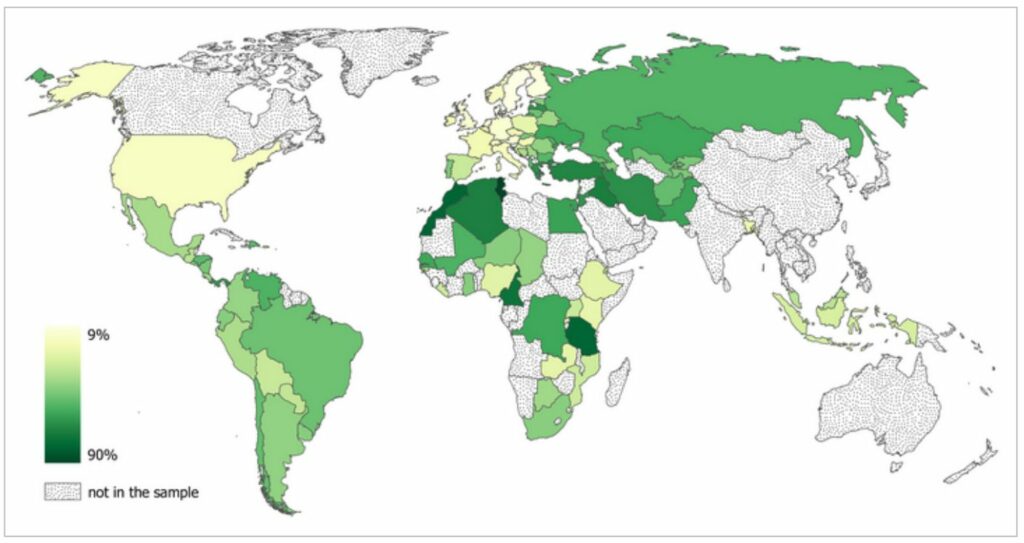There have been a lot of previous studies all over the world documenting people’s beliefs in witchcraft, the idea that some people have supernatural skills to harm people.
Understanding people’s perceptions about witchcraft can be crucial for policymaking and other forms of community engagement.
But there hasn’t been a global statistical study of witchcraft beliefs because there hasn’t been enough data.
Gershman constructed a new dataset containing the beliefs of over 140,000 individuals from 95 nations and territories in order to gain a deeper knowledge of witchcraft.
The data come from face-to-face and phone surveys done by the Pew Research Center and professional survey groups between 2008 and 2017. These surveys asked people about their religious beliefs and whether or not they believed in witchcraft.
Over forty percent of respondents to the study agreed with the statement “certain people can cast curses or spells that cause bad things to happen to someone.”
Beliefs in witchcraft appear to exist all across the world; nevertheless, there is a large amount of variation both between countries and within world regions.
For instance, just 9% of participants in Sweden and 90% in Tunisia said they believed in witchcraft.

Gershman used this data to look into what elements, on the level of the individual, are related to a belief in witchcraft.
While beliefs are common across socio-demographic groups, this data reveals that persons with better levels of education and financial stability are less likely to believe in witchcraft.
Gershman integrated this information with additional country-level data and discovered that there are distinct cultural, institutional, psychological, and socioeconomic elements that affect how people perceive witches in different nations.
For example, witchcraft beliefs are linked to weak institutions, low levels of social trust, and low innovation. They are also linked to a conformist culture and higher levels of in-group bias, which is the tendency for people to favor others who are like them.
The findings of the study published today in PLOS, according to the authors suggest that “witchcraft beliefs are still widespread around the world.”
Also, the number of people who have them is linked to “a number of cultural, institutional, psychological, and socioeconomic” factors.
Image Credit: JOSEPH PREZIOSO/AFP via Getty Images